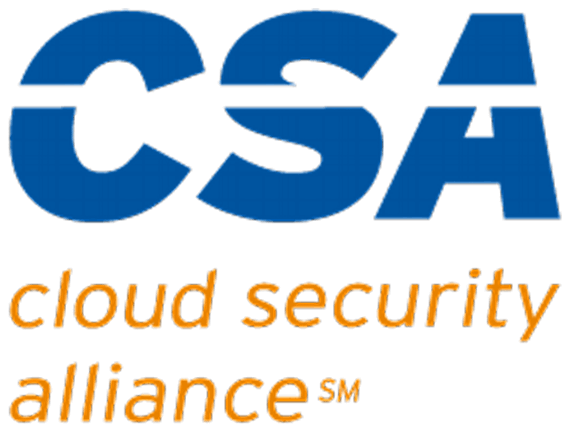Introduction
Technology has become an essential part of business operations, and a growing number of industries are wholly reliant on technology for their day-to-day operations. This reliance on technology means that businesses generate more data than ever before. As a result, companies must have the means to access and store this data securely and efficiently, moving data security to the front of any technology conversation. Businesses must take several precautions to protect their customers’ information and their own, implementing various measures to protect data from being accessed or stolen by unauthorized individuals.
There are many ways to secure data: use of passwords and other forms of authentication, encrypting data so that it cannot be read without a decryption key, and enforcing policies and procedures for handling and storing data are a few examples. Businesses must ensure that their employees are aware of the importance of protecting confidential information, and have adequate training in the policies that are designed to prevent a data breach.
Here are some tips for keeping your business and customer data safe and secure:
Keep passwords and private business information confidential
Make sure passwords are strong and never shared with others outside your organization. Passwords are an essential part of computer security, but they can also be a significant vulnerability if they’re not strong and adequately protected. Never share your passwords with anyone outside of your organization, and make sure to change them regularly. Use a mix of letters, numbers, and symbols to create a strong password that is at least 12 characters long, and never use the same password at multiple sites.
You may also want to consider using a password manager to help you keep track of all of your passwords. A password manager can automatically generate strong passwords for you and keep them safe and organized. Many different password managers are available, so it is important to do your research before choosing one. For business use, you’d want to find a multi-user password manager with robust administrative controls.
Store sensitive business and customer data in a secure location
Small businesses have a lot of data to protect. Securely storing that data is essential to keeping your business safe from data breaches and other security risks. Small businesses are often targeted for data theft, as their networks are not as well protected as larger companies. Sensitive business and customer data must be stored in a secure location that is not easily accessible by unauthorized individuals. The data should be backed up regularly, and access to the backup files should be restricted to authorized personnel.
Data storage options will vary by intended use and the individual needs of businesses. Some companies will opt to use a secure cloud storage provider. This is an excellent option for businesses that need to share files among employees or customers. In this case, make sure the provider you choose uses strong encryption methods to protect your data. Highly sensitive data may best be stored on an internal network server that is protected by access controls and strong encryption. This is a good option for businesses that don’t need to share files with external parties.
Encrypt data before moving it
Small businesses should always encrypt sensitive data before transferring it to a remote server over the Internet, particularly in the case of sensitive customer information like financial account numbers, personal details, account balances, and so on. Data sent over the Internet in clear text is at high risk of being intercepted and compromised. Data should only be transferred over a secure connection protocol such as SSL/HTTPS. By taking these precautions, businesses can protect their confidential information while still taking advantage of wide-area network storage and transfer.
While it might not seem as obvious as the above, businesses should also encrypt data before storing it on removable media. Removable media is vulnerable to theft and unauthorized access, so encryption is the best way to protect information stored in this format. For example, an encrypted USB drive can be used to transport sensitive files. This is a great option for small businesses that need to take files on the go. The data on the USB drive will be encrypted, so it is protected from unauthorized access in the event the drive is lost or stolen. There are several different encryption algorithms that can be used to protect data. The most popular algorithm is AES, which the US government uses to protect classified information. Other algorithms include Blowfish and 3DES. Businesses should choose an algorithm that meets their security requirements.
Educate staff about security and data protection
Many businesses are not fully aware of the importance of employee training in security awareness. According to one recent study, almost half of all employees will click on a link in an email that they were not expecting, regardless of whether or not they know the sender. This can be a significant security risk for businesses, as malware and ransomware can easily be transmitted through malicious links. Employees also need to be trained on how to handle sensitive information. A single data breach can cost a business millions of dollars, not to mention the damage to its reputation. Sensitive information must be kept confidential, and employees must be aware of the consequences if this information is leaked.
There are many online resources that businesses can use to educate their employees on security. One such website is the Department of Homeland Security’s website, which offers a wealth of information on security for businesses and individuals. The website has sections on cyber-security, infrastructure protection, and emergency preparedness. It also includes a section on how to protect your business from terrorism. Other websites that offer security information include the FBI’s website and the National Institute of Standards and Technology’s website. Finally, many private companies – including many IT service providers and MSPs – offer education and training on good cybersecurity practices.
Use intrusion detection solutions to prevent unauthorized access
The modern workplace is a digital one with an increased risk of data theft and other cyberattacks. To protect your computer networks from unauthorized access, deploy intrusion detection solutions. These solutions can help you detect and prevent any malicious activity on your networks. Intrusion detection solutions can also help you track user activity and identify unauthorized access attempts, identify users who may have accessed the network after hours, monitor file transfers, and more. These systems can be set up to allow high-level administrators to detect and respond quickly, often before an intruder has time to do any damage.
Have a multi-layer approach to business security
As businesses grow and evolve, so must their security measures. A multi-layered approach is the most effective way to secure your company’s data.
Physical security measures are necessary to protect your building and physical assets. Fences, locks, and alarms are all standard physical security measures to deter or prevent theft or damage. These measures can also provide a sense of security for employees and customers. It is essential to consider the needs of your business when selecting physical security measures. For example, a company with many valuable assets stored on-site may need a more robust security system than one that does not have as many valuable assets.
Cyberattacks are becoming more sophisticated and common, so it’s essential to protect your data. Technical security measures like firewalls, antivirus software, and instruction detection systems are necessary for keeping your information safe. These tools can detect and prevent malicious activity, which can help you avoid costly and damaging cyberattacks.
Businesses must also use procedural security measures to protect their computer networks and data. Procedural business security includes password policies, computer locking policies, and user permissions. Password policies, for example, require employees to create unique passwords that are difficult to guess and forbid them from being stored in notebooks or sticky notes. Computer locking policies require unattended workstations to be locked to prevent unauthorized users from accessing data. Other procedural security measures include email usage policies and an established system of user permissions that silo data access based on need-to-know. These measures help protect businesses from hacker attacks, malware infections, and other threats.
Conclusion
In conclusion, it’s important to keep your customer and business data safe and secure. By following the tips in this article, you can help protect yourself and your customers from potential data breaches. As a final note, the importance of employee education can not be overstated. A well-informed staff trained in the importance of data security helps ensure that everyone follows best practices. Being proactive in protecting your data can help to maintain the trust of your employees, customers, and business partners.




